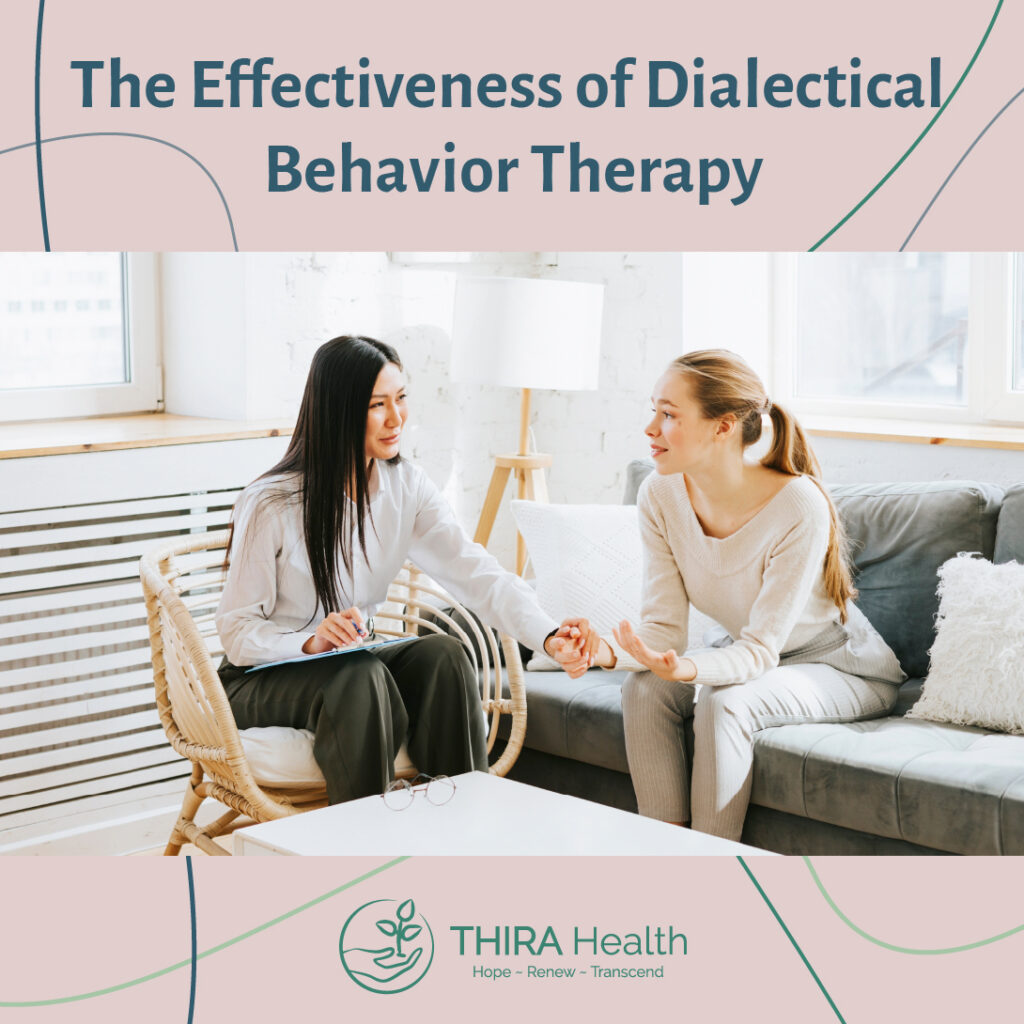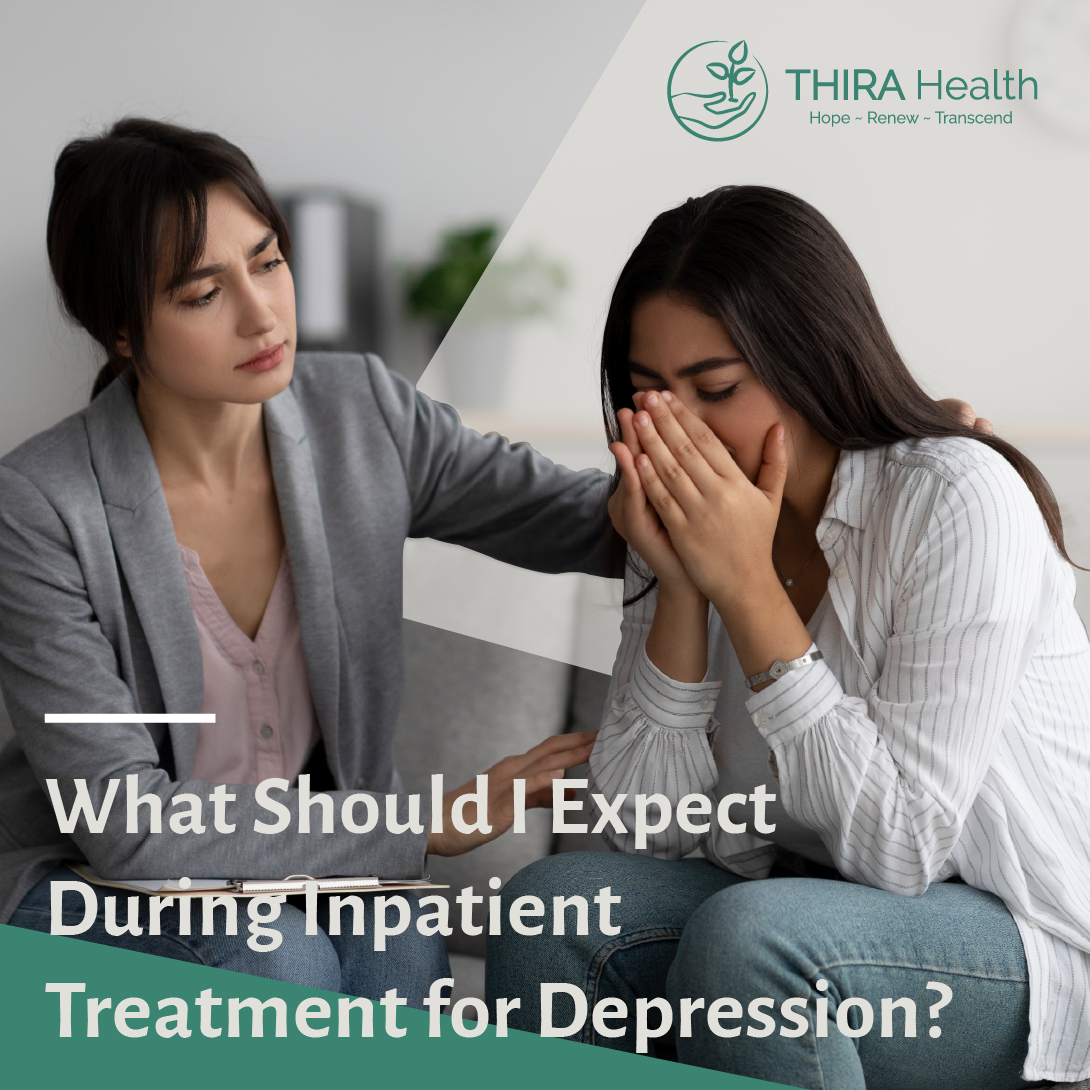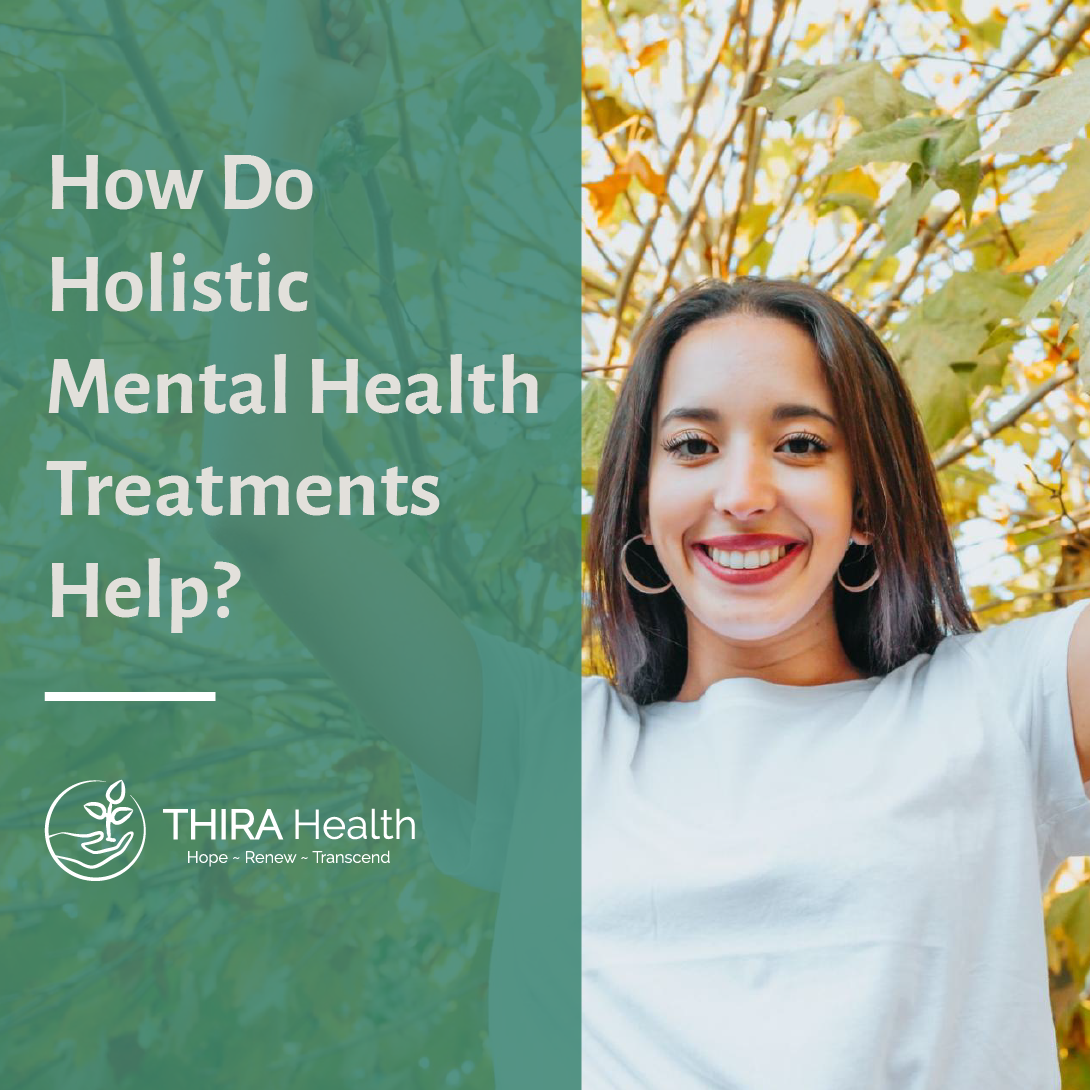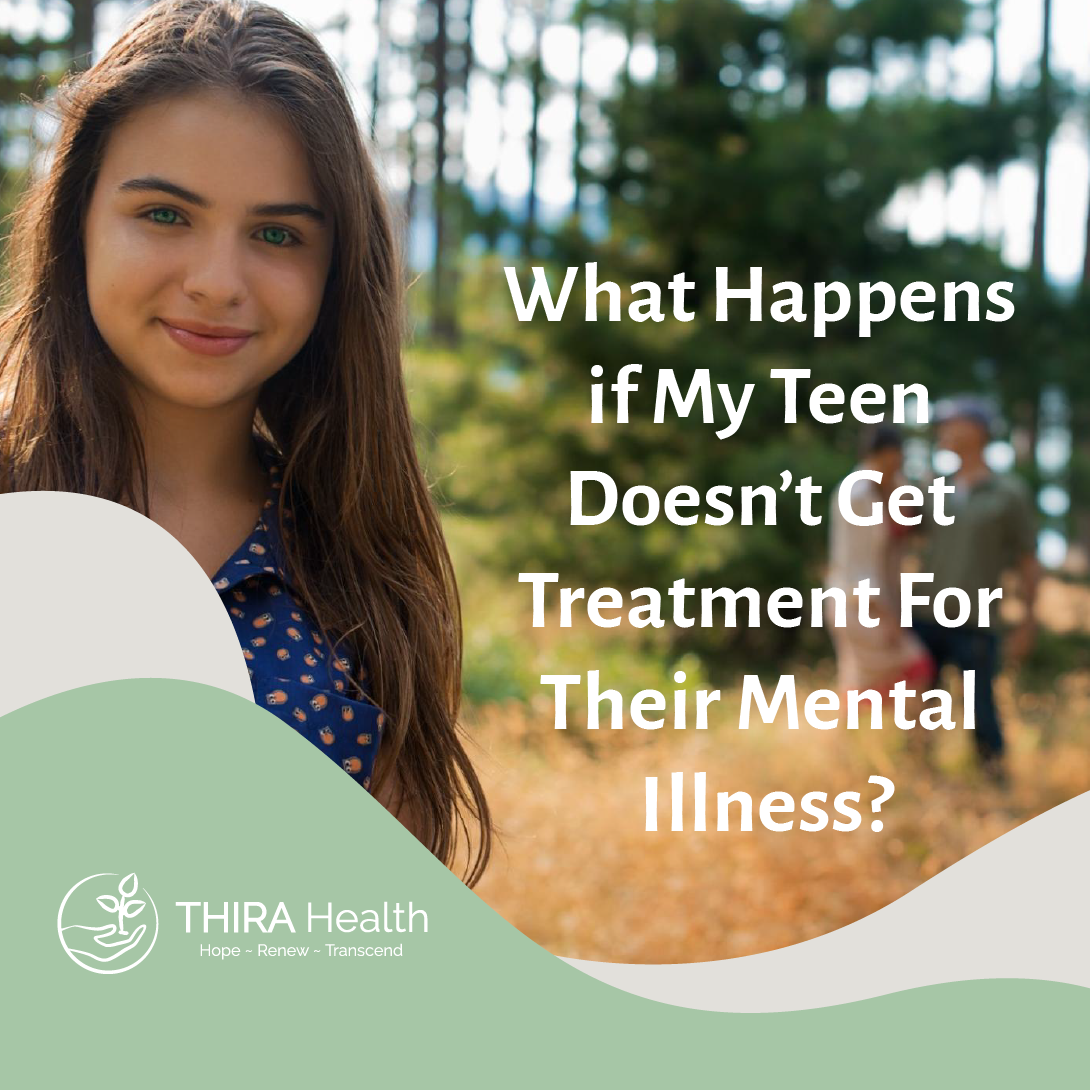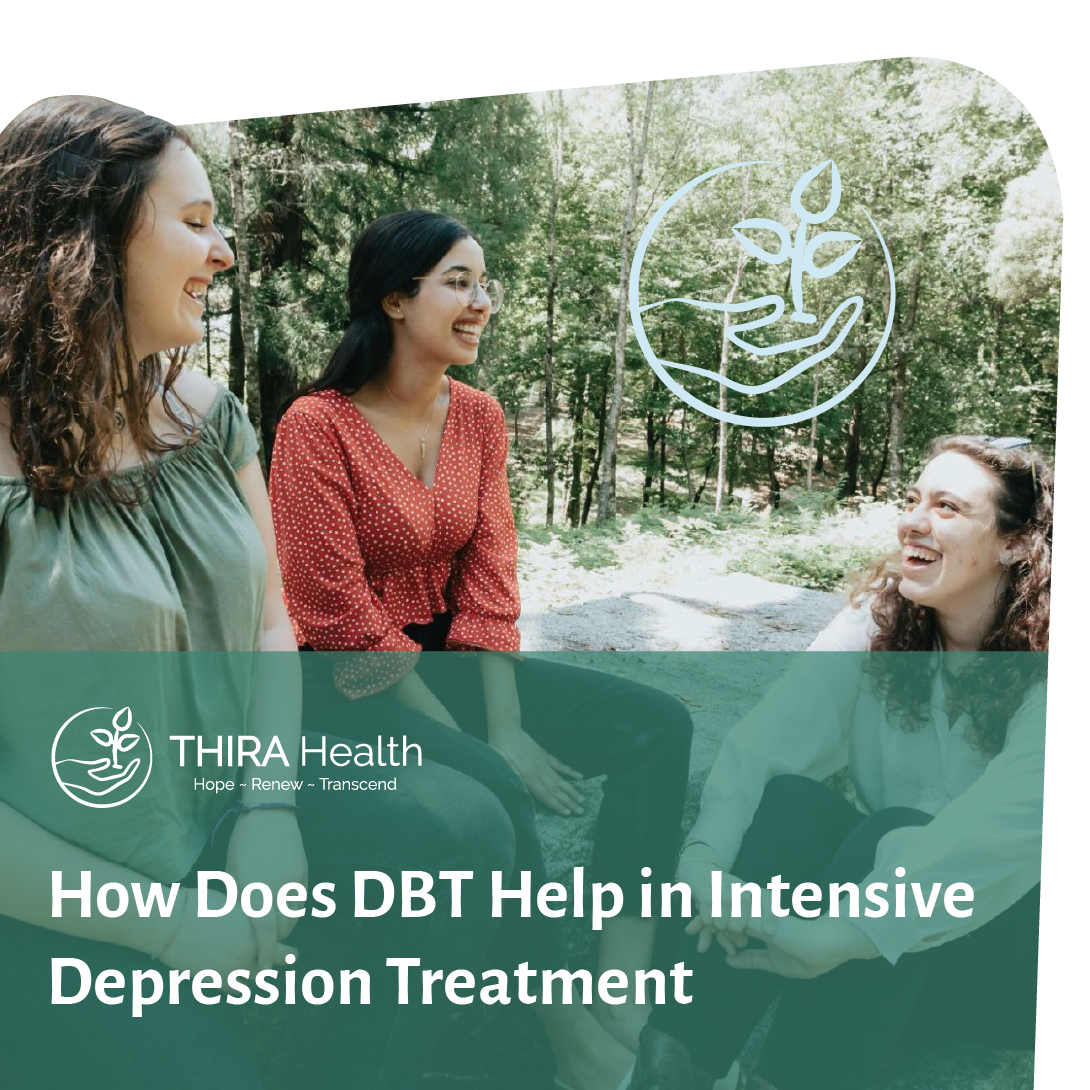Dialectical behavior therapy (DBT) was originally created to assist individuals coping with borderline personality disorder. However, extensive research has highlighted its effectiveness in addressing various mental health conditions, prompting investigations into the true efficacy of DBT, especially when implemented with fidelity. THIRA Health provides DBT based mental health treatment in Washington, and we have created a brief roundup of evidence on the effectiveness of dialectical behavior therapy.
Eating disorder treatment with dialectical behavior therapy
Eating disorders are not just a food issue. The eating component is often an expression of the emotional and mental health difficulties someone is dealing with. Anxiety, depression, emotional dysregulation, and more can go hand-in-hand with an eating disorder, and DBT can help with all of these aspects, and more.
Studies on eating disorders and DBT have shown:
- That DBT is effective particularly for binge eating disorder, as well as bulimia nervosa, in terms of reduction of severity of symptoms.
- DBT was shown to not only reduce symptoms, but also reduce treatment-interfering behaviors, making treatment more effective.
- DBT skills use and adoption was a consistent predictor of improvement in eating disorder symptoms for patients in residential treatment.
Treatment resistant depression and DBT
Treatment-resistant depression is a term that describes depression symptoms that continue even after someone has tried multiple types of antidepressants under the guidance of a doctor. Dialectical behavior therapy can, in fact, help with treatment-resistant depression, in large part because it is different from a lot of forms of talk therapy. DBT is a therapy of doing, of enacting skills in your life, and of practicing these skills in group and individual therapy environments, creating in-the-moment opportunities to build resilient responses.
Studies on DBT and treatment-resistant depression show that:
- DBT skills practice has shown to reduce depression symptoms, on multiple scales for rating the impacts of depression.
- Studies of intensive outpatient program participants treated with DBT showed significant reduction in depression symptoms, and those participants found their life felt lighter, with less suffering, by the end of the program.
- In adolescents experiencing depression and urges for self harm or suicide, DBT reduced their symptoms, helping particularly to reduce urges to harm themselves.
- The middle-path approach and interpersonal effectiveness have both been found to help reduce depressive symptoms in people with treatment-resistant depression, and those skills as practiced through a DBT program in particular helped with long-term reduction in symptoms.
How dialectical behavior therapy helps with anxiety
Tackling anxiety symptoms can be tough, even with conventional approaches like talk therapy and anti-anxiety medication. DBT has been shown to be effective, particularly because DBT gives you the tools to combat the unhelpful, potentially unrealistic thoughts that anxiety can bring up.
Studies on DBT and anxiety have shown:
- Intensive outpatient program participants treated with DBT have shown distinct reduction in anxiety symptoms, and rated their life as better, with less suffering, after their experience.
- DBT skills, in comparison to other therapy modalities, have been shown to be much more helpful for those suffering from anxiety. The mental flexibility, or reduction in black-and-white thinking, can particularly help with anxiety.
- Mindfulness as practiced in DBT helped with emotional acceptance and alleviation of anxiety symptoms for those with panic and anxiety disorders.
- DBT has been shown to reduce issues with anxiety and negative moods for women with eating disorders, which ties together help for multiple issues.
Is it possible to learn DBT skills independently, or is professional guidance necessary?
You may be wondering, “can’t I just try dialectical behavior therapy skills on my own?” It may be tempting to borrow techniques and ideas from DBT, and there are a wealth of resources on DBT skills and exercises online that can make it seem like DBT is just a set of activities to fold into your daily life, like planner pages or life hacks.
Dialectical behavior therapy is, however, a much larger therapeutic structure than the skills exercises used within that structure, and DBT leads you to an entirely new way of moving through the world. DBT helps you change how you interact with others and with yourself and your emotions, and attempting to make that shift without guidance and in-the-moment feedback from a whole team can be difficult, at best.
Dialectical behavior therapy’s structure supports skill practice
The support of individual counseling, group counseling, on-call therapist support, and support for your therapist from other therapists all combines to create an effective, immersive, supportive structure to guide you to a new way of being. Your therapists work to develop trust and rapport with you, so you can lean on them when your symptoms become difficult and when you’re digging into the sources of your challenges. Without that structure and trustworthy support, you might find that the skills on their own are insufficient to help you, which may discourage you and make seeking treatment even harder.
Dialectical behavior therapy practiced with fidelity helps make lasting changes
Alongside missing out on dialectical behavior therapy’s structure, DBT has a deeper purpose, to address and work through trauma and mental health challenges that lead to the troubling behaviors and unmanageable emotions DBT addresses. If you fail to address those underlying issues, the skills that you use aren’t likely to stick long-term. When you have a resurgence of symptoms, you’ll probably wonder if DBT does anything at all. It does, in fact, but it’s only effective long-term when practiced with fidelity, as a whole practice with all parts utilized.
If you’re ready to get started with skilled DBT therapists who provide supportive mental health treatment in Washington, making use of DBT for issues with eating disorders, depression, anxiety, borderline personality disorder, and more, connect with THIRA Health today for a free consultation to see what help we can provide.
